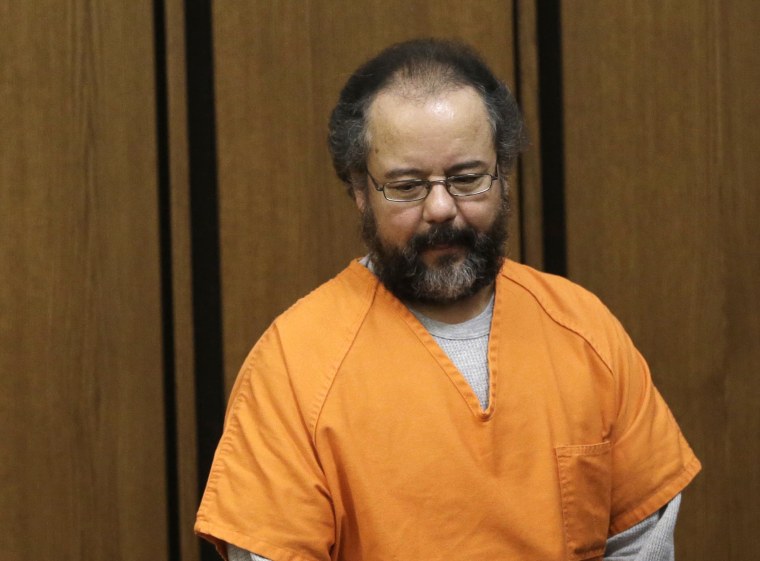Ariel Castro's desire for his young daughter to live a normal life ate at him so much that he eventually eased up on the three women he held captive for a decade, hoping they and the girl would escape his house of horrors, his attorney said.
But he didn't have the "courage" to just go to police and surrender, attorney Craig Weintraub told NBC affiliate WKYC in Cleveland in an exclusive interview.
Weintraub spoke to WKYC almost exactly one year to the day after Amanda Berry, Michelle Knight and Gina DeJesus were rescued from Castro's Cleveland house. The daughter that Berry had given birth to while being held, 6 years old at the time, was also saved on May 6, 2013.
Castro became attached to the little girl, and as she grew older, he realized she needed to live outside the confines of the home, Weintraub said. Six months to a year before the women escaped, Castro told Berry he knew the end was coming.
"It wasn't going well any longer. His daughter was at an age that she should not be in the house anymore. She needed to be in school and be in a normal environment, and she needed friends," Weintraub said.
So Castro intentionally became "much more negligent in the house about locking the door," he said.
Over the years, Castro would barricade the women in rooms upstairs when he had company over, tying them up in chains, Knight told NBC News in interviews that aired this week. He would play mind games with the women, sometimes leaving their doors open but coming in frequently to make sure they didn't try to escape, she said.
But his love for the girl was so strong that he dismissed thoughts of killing the women because of how it might affect his daughter, Weintraub said.

Castro even went so far as to celebrate holidays with his captives. Weintraub described home videos, now in the possession of the FBI, of the group celebrating Easter and Christmas.
"What was startling to me was watching the videos of the Easter celebrations in the house, searching for Easter eggs, hunting for Easter eggs, as well as the Christmas celebration, like it was a normal family," he said.
Weintraub described his client as a sociopath and said he would joke with the women about the books they would write once they were free.
Weintraub was one of two attorneys for Castro and talked with his client extensively in jail after Castro's arrest. He said Castro would frequently toy with him, insisting on talking to him naked inside his cell and avoiding answering questions about evidence by making Weintraub turn off the air conditioning.
Castro pleaded guilty to hundreds of charges and was sentenced in August to life in prison plus 1,000 years. The following month, he committed suicide in his prison cell.
Weintraub's revelations came on the same day that new documents in the case were made public.
Hundreds of pages, including police files, internal memos, and court records, were released Monday by Cuyahoga County prosecutors and published by The Cleveland Plain Dealer. More records are expected to be released later.
Reams of pages were redacted, and some of the information published in the papers had already been made public in the case.
But many details were revealed for the first time, including:
Castro was sexually abused as a young boy, but didn't use his childhood as an excuse for the decade of torture that he forced three women to endure inside his house.
- Berry, Knight, and DeJesus said they didn't want the case to go to trial, if possible. "They say they understand the need to put Castro away for life," Blaise Thomas, an assistant county prosecutor, wrote in an interoffice memo. In the same memo, he said that Berry told authorities she "did not want to participate in killing her child's father."
- Prosecutors wanted Castro to take a lie-detector test to figure out whether there were any other victims. The test showed there were not.
- Castro said he and the mother of his other children, Grimilda Figueroa, had an abusive relationship. He blamed her for the violence, claiming he was defending himself. Court records show he often beat her, breaking her ribs and giving her a head injury.
- Castro's school records, which prosecutors pulled, showed he was a below-average student who struggled in high school, despite graduating in 1979.